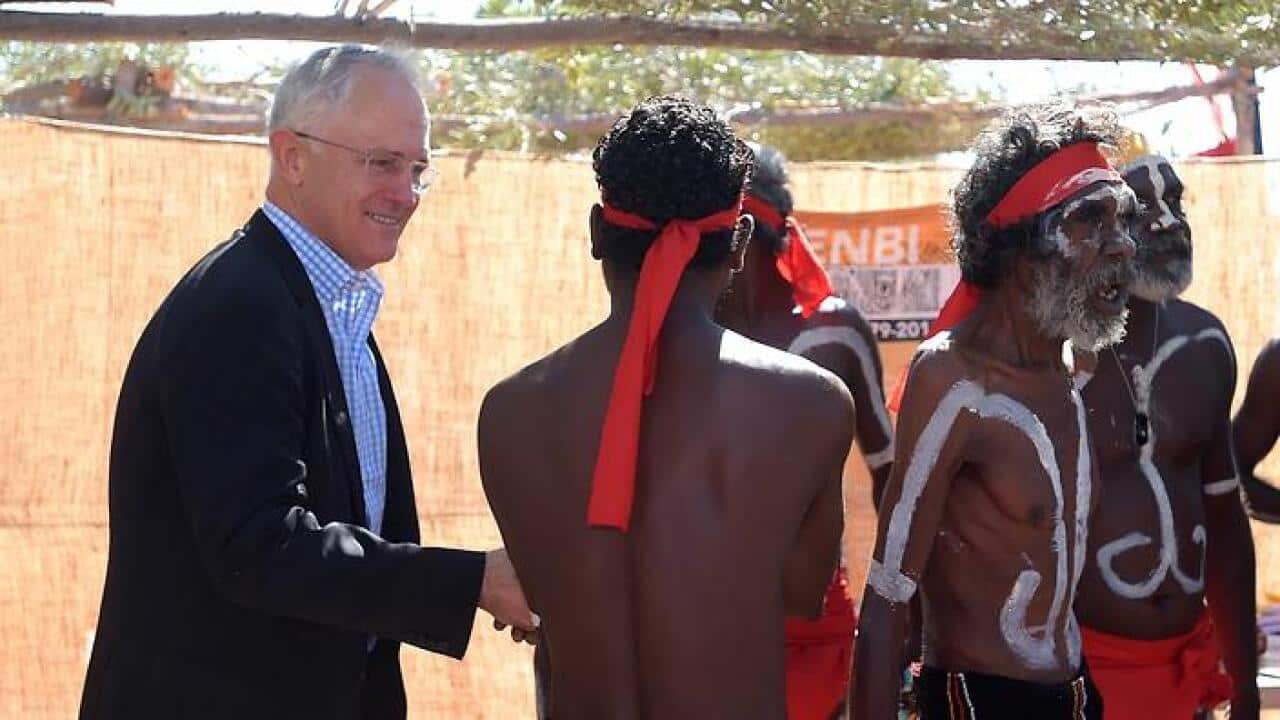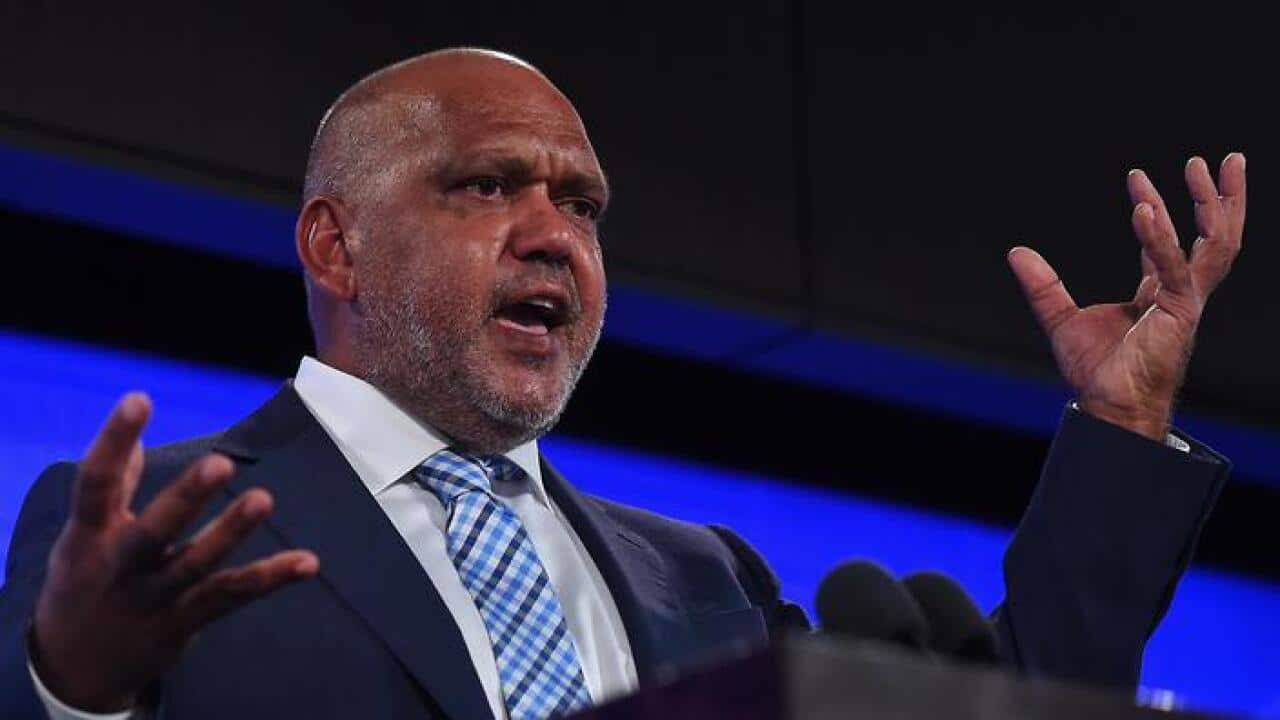When former Chief Justice Michael Kirby first read the he was sceptical.
"At first, I probably had concerns similar to those that caused our Prime Minister Malcolm Turnbull to reject the big ideas of Uluru," he said.
It was in October last year when Prime Minister Malcolm Turnbull rejected the 'big ideas' of the Uluru Statement - namely the call for the establishment of a First Nations Voice enshrined in the Constitution.
"The Government does not believe such an addition to our national representative institutions is either desirable or capable of winning acceptance in a referendum,” Mr Turnbull said at the time.
But Mr Kirby believes the Prime Minister jumped the gun.
"He did before there had been any real discussion or an opportunity for Australians, at large, to debate the options for implementing the Uluru Statement from the Heart," he said.
An 18-month consultation process, convened by the jointly-appointed Referendum Council, resulted in an unprecedented gathering of around 250 First Nations people at Uluru in 2017.
The overwhelming message was the rejection of symbolic recognition in the Constitution, and instead constitutional reform that makes a real difference.
Calls for a Makarrata Commission were also made to supervise a process of agreement-making between governments and First Nations, and truth-telling about our history.
Three months later, the Uluru Statement from the Heart was presented to both Prime Minister Malcolm Turnbull and Opposition Leader Bill Shorten at the Garma Festival.
Subsequently, Mr Turnbull rejected the calls for a constitutionally-enshrined Voice to Parliament because it lacked detail.
Just last week, Indigenous Affairs Minister Nigel Scullion echoed these sentiments.
"We need to have some detail, Australia deserves detail," he told NITV News.
Watch: Uluru was just the beginning
New proposals provide 'flesh on the bones'
Now, Michael Kirby says the detail has been provided.
"This is the answer to the suggestion that it [the Referendum Council's final report] was big on ideas and short on an action program," he said.
Launched on Tuesday, the comprehensive set of proposals provide ways to legislate an Indigenous Voice to Parliament.
It provides two suggestions for how Indigenous voices might be recognised and provides draft legislation showing how each suggestion might be implemented by Parliament.
The first is a “Speaking For Country” option which requires the establishment or recognition of local Indigenous entities for people who speak for Country, and to provide the machinery for them to provide advice to the Parliament.
The Speaking for Country Bill would deliver the detail on how these entities would be established. It also would provide a pathway for local entities to affiliate voluntarily, both nationally and regionally, so that there is a conduit for providing advice from local Indigenous voices to Parliament.
It would be up to local people to organise themselves and decide how they wish to be represented. A Recognition Commission would then be responsible for certifying which group of people speaks for which Country, and the process leading to formal recognition of a local entity for that group's Country.
The second option is an Advisory Council enshrined in the Constitution that would provide advice to the Parliament, and, in certain limited circumstances, the Parliament would be under an obligation to consider the Advisory Council’s advice before passing a proposed law.
The proposed Constitution Alteration (Receiving Indigenous Advice) Bill would establish procedural rules enforceable by Parliament, but out of the realm of judicial enforcement. Parliament would decide, with the consultation of First Nations peoples, how the Advisory Council should be composed, as well as determine its roles, powers and procedures.
The Advisory Council would be entitled to have advice tabled in Parliament, with the two houses only required to consider such advice if it relates to a designated bill.
The options were developed by a policy unit established jointly by the Australian Catholic University and non-for-profit Uphold and Recognise. Both are committed to reconciling two imperatives: 'to uphold the Australian Constitution and recognise Indigenous Australians.'
Without it, Cape York Institute Founder Noel Pearson says a successful outcome would be difficult.
"At the end of the day for a successful referendum, a majority of voters in a majority of the states - there are two constituencies that are particularly important," he said.
"It is the Indigenous peoples who are sought to be recognised and the conservatives who serve to uphold the Constitution, and if we get that connection, if we maintain faith and we grow that alliance, we will succeed in a referendum."
Mr Pearson, who helped launch the new proposals, is optimistic and believes Australians are ready to make a positive decision.
"I think the Australian people are ready for this. If the question is put to the Australian people, I believe the Australian people will put their hands up for this," he said.
The Uphold and Recognise collective of legal specialists and Indigenous leaders launched the proposals in the NSW Parliament on Tuesday. The high-powered group is backed by corporate and institutional organisations.
Uphold and Recognise Director, Rachel Perkins, said while the options will be most likely be 'shot down,' they're intended to be a springboard for further discussion.
"No doubt they will be shot down, people will argue over them, there will be different views and that's what we want," she said. "We really want people to engage with the detail because unless we get into the detail we are not going to progress this issue and really they are for Indigenous Australians to really dig into the depth of the detail to figure out how they want to be represented."
Michael Kirby says now that the detail has been provided, there can be 'no excuse.'
"These documents that have been prepared are to put flesh onto the bones to show how it could be done," he said.
"They don't ask for seats in Parliament, they don't ask for a veto, they don't ask for proportional representation, they don't even necessarily expect that every time they ask for something for the Aboriginal and Torres Strait Islander peoples that it will be accepted. They ask for voices into Parliament."
Parliament listening to all options
The proposals come as a new Joint Parliamentary Committee tours the country listening to ideas on how to move forward on constitutional reform.
Committee co-chair Julian Leeser said the committee looks forward to considering the group's proposal.
“Uphold and Recognise have made a submission to our Inquiry and have also appeared as witnesses during hearings in Canberra," he told NITV News.
"We understand that their proposal has presented both a local and a national option, and we look forward to considering these proposals among the range of submissions that have been presented to the Committee."
Mr Leeser co-founded the Uphold and Recognise group in 2015 but stepped away after being elected as a Liberal MP. Now, he is hopeful the committee will elevate the calls for constitutional reform.
"I’m hopeful that we will have a result that will take this to the next step," he said.
The committee, co-chaired by WA Labor Senator Pat Dodson, follows the work of the Joint Select Committee on Constitutional Recognition of Aboriginal and Torres Strait Islander Peoples and the Expert Panel on Constitutional Recognition of Indigenous Australians.
Committee member and NT Labor Senator Malarndirri McCarthy is confident a way forward will be presented.
"Many people and organisations have given evidence to the Committee through submissions and at hearings," she told NITV News.
"I am confident that the committee will be able to produce a report that gives way to a model of constitutional reform and recognition of First Nations people."
More than 100 submissions were lodged from both individuals and institutions, Indigenous and non-Indigenous. The committee will hold public hearings in Dubbo, Canberra, Sydney, Adelaide and Perth next week.












